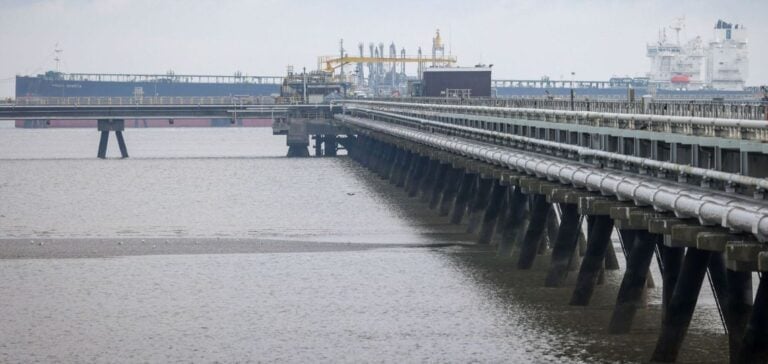In Germany, Uniper is building a non-permanent LNG import terminal in Wilhelmshaven to supply the country.
An expected terminal
In Germany, the non-permanent LNG import terminal will start supplying gas this winter. However, this is not the only project underway in Wilhelmshaven. Indeed, two additional decarbonization-related projects will run in parallel under the name “Green Wilhelmshaven.”
The first is an ammonia import terminal. It will be used to deliver large quantities of renewable hydrogen to Germany via Wilhelmshaven. This means that the ammonia will come from sunny regions around the world, Uniper says.
Moreover, this project would take place in the second half of the decade. The second project is an electrolyser with a capacity of up to 1000MW. It will produce hydrogen from offshore wind energy.
The terminal has been under consideration for a few years, but Uniper was focused on other projects. However, due to the Russian-Ukrainian conflict, Germany is seeking to further diversify its import sources. Thus, the international context leads to the restart of the plans.
A strategic pole
Uniper announces that the project will be completed in less than a year despite initial plans for five years. This delay is possible thanks to the German LNG acceleration law. Moreover, this shortening is a result of the very nature of the import terminal.
Indeed, an existing ship will intervene as FSRU in Wilhelmshaven. The ship has been crossing the world’s oceans for the past four years. However, it underwent early maintenance and the necessary modifications in Brest.
Holger Kreetz, COO Asset Management at Uniper, says:
“In the near future, the terminal will be able to meet up to 8% of Germany’s pre-war gas demand using up to 70 LNG carriers per year. Each vessel can transport 170,000 m³ of liquefied gas and thus supply 50,000 to 90,000 German households.”
The FRSU will be based in Wilhelmshaven. Thus, it will be operational for the next 10 years.
In parallel, the ammonia import terminal and the electrolyser are still in the planning phase. Holger Kreetz, COO Asset Management at Uniper, says:
“The LNG terminal has not put everything else on hold; on the contrary, it will give an even greater impetus to future projects. In fact, the terminal creates synergies since the Wilhelmshaven infrastructure can be used for both LNG and hydrogen.”
In addition, the 26-kilometer OGE (Open Grid Europe) pipeline is ready for hydrogen.






















